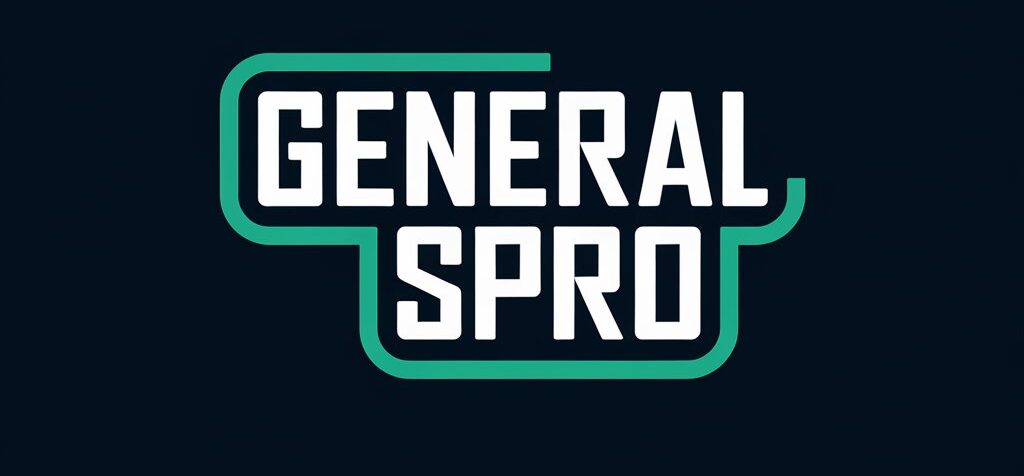Welcome to the definitive guide on W9 form essentials for SkilzMatrix contractors! If you work in the dynamic world of technology staffing, understanding your tax documentation isn’t just a checkbox—it’s your financial lifeline.
The W9 form explained isn’t just paperwork; it’s your professional passport to smooth financial interactions.
SkilzMatrix has emerged as a powerhouse in technology recruitment, connecting talented professionals across diverse tech sectors. But here’s the catch: every contractor’s journey begins with proper tax documentation.
This guide will demystify the W9 form, breaking down complex tax compliance requirements into digestible, actionable insights.
Understanding the W-9 Form: More Than Just Paperwork

The W9 form is your financial identity card in the professional world. It’s a critical document that bridges the gap between independent contractors and businesses like SkilzMatrix. Here’s what makes it so crucial:
Critical Components of the W-9 Form
- Legal Identification: Your full legal name
- Business Name (if applicable)
- Federal Tax Classification
- Exemption Codes (if relevant)
- Taxpayer Identification Number (TIN)
Historical Context
Introduced by the Internal Revenue Service in the 1980s, the W9 form has been a cornerstone of tax reporting. Its primary purpose is to ensure accurate income reporting and maintain tax compliance for independent contractors.
Engaging Contractors Across Diverse Tech Fields
SkilzMatrix’s platform overview reveals a remarkable breadth of technological expertise. The platform connects top-tier talent across multiple domains, from AI and cybersecurity to SAP and Salesforce. But here’s where tax documentation becomes critical.
Sectors Covered
- Artificial Intelligence
- Cybersecurity
- Enterprise Software (SAP)
- Customer Relationship Management (Salesforce)
- Cloud Computing
- Data Science
- Network Engineering
Comprehending the W-9 Form: Detailed Breakdown
Filling out a W9 form requires precision. You’ll need to provide:
- Your full legal name
- Business name (if different)
- Federal tax classification
- Complete mailing address
- Taxpayer Identification Number (TIN)
TIN Basics

The Taxpayer Identification Number (TIN) is your financial fingerprint. It can be:
- Social Security Number (SSN) for individuals
- Employer Identification Number (EIN) for businesses
The Significance of Precision in W-9 Documentation
Accuracy isn’t just important—it’s everything. A single misplaced digit can trigger:
- Payment delays
- Backup withholding
- Potential IRS scrutiny
Common Mistakes to Avoid
- Incorrect TIN entry
- Mismatched legal name
- Outdated contact information
- Unsigned or incomplete form
Repercussions of Incomplete W-9 Submission
What happens when you need to submit a proper W-9? The consequences can be financially painful:
Potential Outcomes
- 24% backup withholding
- Delayed payments
- Complicated tax reporting
- Potential legal complications
Key Facts Table: W-9 Essentials for SkilzMatrix Contractors
Aspect Details
Purpose: Accurate tax reporting
Withholding Rate 24% if W-9 is incomplete
Submission Frequency: Once per tax year
Information Required Legal name, TIN, address
Storage Method Secure digital platform
The Evolution of Independent Contractor Reporting
The landscape of independent contractor taxation has transformed dramatically over the past decade.
What once was a simple handshake agreement has evolved into a complex ecosystem of digital reporting, sophisticated tracking, and stringent IRS compliance.
Technology platforms like SkilzMatrix have revolutionized how contractors manage their financial documentation, creating seamless bridges between talent, technology, and tax reporting mechanisms.
Understanding Your Financial Identity as a Contractor
Every independent professional carries a unique financial DNA – your tax identification. This goes beyond mere numbers; it’s a comprehensive profile that tells the story of your professional journey.
Each digit from your Social Security Number to your Employer Identification Number represents a chapter in your working life. Understanding this identity is crucial for navigating the intricate world of tax compliance and financial reporting.
The Digital Transformation of Tax Documentation
Gone are the days of paper forms and manual submissions. Modern tax documentation has become a digital dance of secure platforms, encrypted submissions, and real-time verification.
Platforms like SkilzMatrix are at the forefront of this revolution, transforming how independent contractors interact with their financial documentation and making the process more transparent, efficient, and user-friendly.
Navigating the Complex Terrain of Independent Contractor Taxes
Independent contractors face unique tax challenges that traditional employees never encounter. From managing self-employment taxes to tracking business expenses, the financial landscape requires a strategic approach.
Understanding these complexities isn’t just about compliance—it’s about maximizing financial potential and minimizing potential risks.
The Psychological Impact of Tax Compliance

Beyond the numbers and forms, tax compliance carries a significant psychological weight for independent professionals. The stress of potential audits, the complexity of documentation, and the fear of making mistakes can create substantial mental barriers.
Developing a healthy, informed approach to tax documentation can transform this anxiety into empowerment.
Technology’s Role in Simplifying Tax Reporting
Modern technology has become a game-changer in tax reporting for independent contractors.
Advanced platforms now offer real-time guidance, automated error checking, and intuitive interfaces that make tax documentation feel less like a chore and more like a strategic financial tool.
Integrating AI and machine learning further revolutionises how contractors interact with their tax responsibilities.
The Global Perspective of Independent Contractor Taxation
In an increasingly connected world, independent contractors are no longer bound by geographical limitations.
This global mobility brings complex tax implications, requiring a nuanced understanding of international tax treaties, reporting requirements, and cross-border financial regulations. Navigating this landscape demands both strategic thinking and comprehensive knowledge.
Risk Management in Contractor Financial Reporting
Financial reporting for independent contractors isn’t just about compliance—it’s a critical risk management strategy.
Each form and submission represents a potential point of vulnerability. Understanding how to mitigate these risks through accurate, timely, and transparent reporting is crucial for long-term professional success.
The Intersection of Personal and Professional Financial Identity
For independent contractors, the line between personal and professional finances is often blurred. Your tax documentation becomes a reflection of your professional brand, your financial discipline, and your strategic approach to career management.
Treating your W-9 and related documents as more than just paperwork is critical to building a robust economic foundation.
Emerging Technologies in Tax Compliance Verification
Blockchain, artificial intelligence, and advanced encryption transform how tax compliance is verified. These technologies create more secure, transparent, and efficient systems for tracking and validating contractor information.
Tax documentation’s future is about filling out forms and creating comprehensive, real-time financial profiles.
The Psychological Resilience of Successful Contractors
Successful independent professionals develop a unique form of financial resilience. This goes beyond tax compliance—creating a holistic approach to economic management that combines strategic reporting, continuous learning, and adaptive thinking.
Your W-9 is just one tool in this comprehensive financial toolkit.
Decoding the Language of Tax Compliance
Tax documentation has its own complex language, filled with acronyms, specific terminologies, and intricate regulations. Learning to speak this language fluently is crucial for any independent contractor.
It’s not just about understanding the words but comprehending the more profound implications and strategies behind each term.
The Role of Continuous Education in Tax Management
Tax laws and reporting requirements are constantly evolving. Successful independent contractors view continuous education as not a burden but a strategic investment.
Staying informed about changes in tax regulations, reporting technologies, and financial strategies becomes a critical competitive advantage.
Building Your Financial Narrative Through Documentation
Each tax document you submit is a chapter in your professional story. Your W-9, 1099, and other forms are administrative necessities and powerful tools for building your financial narrative. They tell a story of professionalism, reliability, and strategic financial management.
The Ethical Dimensions of Tax Compliance

Tax compliance goes beyond mere legal requirements—it is fundamentally an ethical practice. It represents your commitment to transparency, societal infrastructure contribution, and professional integrity.
Understanding this broader context transforms tax documentation from a bureaucratic task to a meaningful professional responsibility.
Navigating Emotional Barriers in Financial Reporting
Many independent contractors experience significant emotional resistance to tax documentation. Fear, confusion, and anxiety can create mental blocks that hinder effective financial management. Developing emotional intelligence and a strategic mindset is crucial for overcoming these barriers.
The Future of Contractor Financial Ecosystems
We are witnessing the emergence of integrated financial ecosystems that go far beyond traditional tax reporting. These platforms combine documentation, financial planning, risk management, and strategic insights into cohesive, user-friendly experiences.
Mastering the Art of Financial Self-Advocacy
Successful independent contractors learn to become their own best financial advocates. This means understanding how to complete forms and strategically position oneself within complex financial landscapes.
The Holistic Approach to Contractor Financial Health
Financial health for independent contractors is multidimensional. It involves tax compliance, strategic savings, investment planning, risk management, and continuous professional development.
Transforming Compliance into Opportunity
The most successful professionals view tax compliance not as a burden but as an opportunity for strategic financial positioning. Each document becomes a tool for understanding your professional trajectory and potential.
The Human Element in Digital Tax Reporting
Despite increasing automation, the human element remains crucial in tax reporting. Algorithms cannot fully replace judgment, context, and nuanced understanding.
Cultivating a Strategic Financial Mindset
Beyond specific skills, successful independent contractors develop a strategic financial mindset that sees documentation as a dynamic, powerful tool for professional growth.
The Interconnected Nature of Financial Reporting
Modern tax reporting is increasingly interconnected, with platforms sharing verified information, creating more transparent and efficient ecosystems.
Empowerment Through Financial Knowledge
True financial empowerment comes from understanding, not just complying. The most successful contractors view their documentation as a pathway to deeper financial insights.
The Continuous Evolution of Tax Technologies
The tax reporting landscape is constantly changing, with emerging technologies continuously reshaping how independent professionals manage their financial documentation.
Beyond Compliance: Creating Your Financial Legacy
Tax documentation is more than annual reporting for forward-thinking independent contractors—it’s about creating a lasting financial legacy.
FAQ’s
What Exactly is a W-9 Form, and Why Do I Need One?
A W-9 is an Internal Revenue Service (IRS) tax form that collects critical information about independent contractors. For SkilzMatrix, your official document helps the company report your earnings accurately.
Think of it as your financial passport – it ensures you get paid correctly and allows the IRS to track independent contractor income.
How Often Do I Need to Submit a W-9 to SkilzMatrix?
You’ll typically submit a new W-9 :
- Annually, at the beginning of each tax year
- Whenever your personal or tax information changes
- When you first start working with SkilzMatrix
- If requested by the platform for verification purposes
What Happens If I Don’t Submit My W-9?
Failing to submit a W-9 can lead to severe consequences:
- 24% backup withholding on your payments
- Potential payment delays
- Inability to receive 1099 tax documentation
- Possible account suspension on the SkilzMatrix platform
Which Taxpayer Identification Number Should I Use?
Your Taxpayer Identification Number (TIN) depends on your business structure:
- Individuals: Use your Social Security Number (SSN)
- Businesses: Use your Employer Identification Number (EIN)
- LLC/Sole Proprietors: Typically use your SSN unless you’ve registered an EIN
How Does SkilzMatrix Protect My Personal Information?
SkilzMatrix employs robust security measures:
- Bank-grade encryption
- Secure digital storage
- Restricted access protocols
- Compliance with data protection regulations
- Regular security audits and updates
Can International Contractors Use the W-9 Form?
The W-9 is specifically for U.S. tax residents. International contractors typically:
- May need to complete different forms (like W-8BEN)
- Should consult with SkilzMatrix’s international contractor support
- Might require additional tax documentation depending on their country of residence
What’s the Difference Between a W-9 and a 1099 Form?
- W-9: Provides your tax identification information to the company
- 1099: Reports your total annual earnings to you and the IRS
- W-9 is submitted before work begins
- 1099 is issued at the end of the tax year, summarizing your total income
How Quickly Will I Receive Payment After Submitting My W-9?
Submission timeline:
- Complete W-9: Typically processed within 5-7 business days
- Accurate information: Ensures smooth payment processing
- Incomplete forms: May delay payment up to 2-3 weeks
Conclusion
Navigating W9 forms in the context of SkilzMatrix is essential for ensuring compliance, transparency, and efficiency in financial and tax processes.
These forms are vital for verifying taxpayer information and streamlining payments to contractors and freelancers. By properly completing and submitting a W9, businesses and individuals are safeguarded against potential IRS penalties and establish professional credibility.
For SkilzMatrix users, incorporating W9 forms into your workflow enhances trust and ensures accurate record-keeping, laying the foundation for scalable and compliant business operations.
Stay informed, follow IRS guidelines, and leverage this essential tool to simplify your tax reporting process while maintaining legal and financial integrity.








